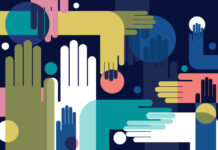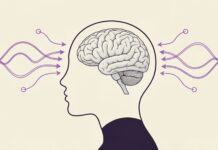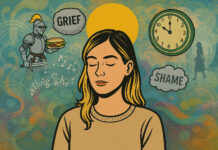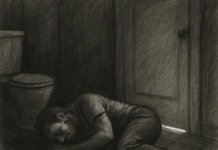Goodbye, Brian Wilson
I propose to call any psychiatrist-patient bond “Landy syndrome” after psychiatrist Eugene Landy, the captor, abuser and oppressor of Brian Wilson.
Madness Is a Human Phenomenon
We can see how complicated it is to be human and how much human suffering (called psychopathology) is a complex and unique human phenomena.
Why Psychotherapy Should Busy Itself with Building Character Strengths, Not Reducing Symptoms
Clients want outcomes like self-understanding, self-agency, and social engagement from therapy.
It’s a No-Brainer: Living Proof We Are More Than Our Parts
Terms like “reward systems,” “emotion centers,” and “decision circuits” suggest precision. But these aren’t discoveries—they’re metaphors.
Soteria—A Human Response to a Human Problem
The Soteria model has gained recognition in Israel, with more than 35 such "stabilizing houses" now operating, most publicly funded.
Two Years Later: My TMS Story, From Gaslighting to Finding My Voice
This didn’t feel like a temporary adjustment phase. It felt like my brain was glitching.
Conceptual Synaesthesia as Cognitive Literacy
I don’t just feel things; I translate them. For those of us who experience it, it is not a novelty. It is a structure for thinking.
Why Psychosis Is Not So Crazy: A Conversation with Stijn Vanheule
Vanheule urges clinicians to listen for the structure in psychotic thought. He offers clinical examples that reframe hallucinations as a form of creative response to unspeakable dilemmas.
From Wounds to Labels to “Mental Illness”
We don’t need to understand someone’s entire past to exercise a little emotional humility—to see behavior as adaptation, not brokenness.
Waking Up to Your Emotions 101: The Other Side of Psychiatric Drug Withdrawal
Many people find themselves stuck: withdrawal symptoms might have passed, but emotionally, life feels overwhelming.
Antipsychotics Do Not Provide a Clinically Meaningful Benefit Over the Short-Term: A Review of...
70 years of RCTs fail to provide evidence that antipsychotics provide a clinically meaningful benefit for treating acute psychotic episodes.
Are We Sober Yet?
I asked my psychiatrist if the Lexapro could be making it harder for me to stop drinking. He laughed and assured me that it was impossible.
Beyond Medicalization: Psychedelic Therapy and the Promise of Community-Based Healing
Will psychedelics represent something different, or will we recreate the same problematic paradigms?
Where Is God When I Cut Myself? Soul Care and the Voices of Self-Injury...
Care, as I’ve come to see it, is about sitting beside someone when the pain is too loud for words and not leaving.
The Pill That Stays After the Panic Ends
We need to stop expecting pills to do the work that only truth, connection, and expression can do. Relief is not the same as recovery.
Therapists, Neutrality Is No Longer an Option — Politics Is Tearing Us Apart
To my fellow therapists: stop playing neutral. Stop minimizing systemic trauma to keep your comfort intact.
Veterans Take Their “War Cry For Change” to Capitol Hill
Despite VHA’s $571 million suicide prevention budget, veterans are dying by suicide at alarmingly high rates. Advocates want answers and accountability.
I Have a Night Life: When Doctors Become Fathers, and Fathers Become Patients
Dad, it’s going to be okay, I say. Dad, you have delirium. He is losing his mind. And so am I. At night time.
Inertia as Neuroceptive State Beyond the Pathologizing Lens
Reframing inertia as an adaptive, biologically based survival response offers a powerful alternative to traditional deficit-oriented models.
A Therapist Navigating Antidepressant Withdrawal: Nelson Lee on the Power of the Present Moment
Therapist and coach Nelson Lee joins us on the podcast to discuss how he approaches helping clients while navigating the complexities of antidepressant withdrawal.
A Relationship Imbalance, Not A Chemical Imbalance
With DSM-III, everything we knew about relationship dynamics was buried under the tidal wave of the pharmaceutical industrial complex.
Between Diagnoses and Dialogue: The Silent Conflict Between Psychiatry and Psychology
In contrast to psychiatry's biomedical model, for many psychologists, care begins with listening rather than labelling.
Researchers: “We Do Not Suggest” Antipsychotics for Depression
Augmenting with antipsychotics was no better at reducing suicide than adding antidepressants, but led to increased risk of death from other causes.
Depression Caused by Kissing? Psychiatry Hits New Low with Clickbait Fear-Mongering
Instead of being laughed at, this study is being promoted across outlets like Vice and The Colbert Report.
The AI Who Helped Me Leave
In quiet desperation, I opened ChatGPT. I didn’t know then that I was about to build the most consistent, emotionally attuned dialogue I’d ever had.

































